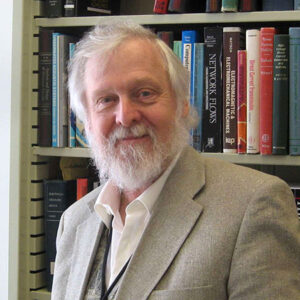Harold Kirkham
Home / Harold Kirkham
Presentations:
Measuring Success: Explaining Power System Measurements
A century ago, as loads increased and generators got bigger and better, voltages and currents got bigger, too. The need to measure them was not lost on the engineers of the day. The pressure of system growth led to significant advances in instrumentation, a trend that has continued until the present day. Unfortunately, the theory behind the measurements was considerably lagging. Although engineers and scientists expect the results of their measurements to be “scientific,” it happens that the measurement of power, reactive power, apparent power and power factor do not meet the requirements. The issue is not one of instrumentation, it is one of measurement theory. The growth in renewable energy and IBR-based power provides pressure today to solve the measurement issues. Incommensurate results for reactive power have perplexed most power engineers, for example. To make results meaningful, IEEE Standard 1459 is being revised. The new Standard will be explained against a background of measurement theory.
Explaining the Phasor Measurement Unit
Most measurements made in the power system are consistent with the notion that measurement is a homomorphic mapping from the physical system to the conceptual world. The measurements are operational, and the results cannot be reversed to infer a physical meaning. The Phasor Measurement Unit differs from these measurements in that it is a representational measurement. An isomorphic mapping can be inferred. Unfortunately, the documentary standards of IEEE and IEC that apply to the PMU are based on a fundamental misunderstanding of the measurement. (The speaker was a member of both working groups, so this talk is somewhat of a mea culpa.) The problem with the standard is explored, and used to raise the possibility of a PMU with even better performance. Applications for the reverse-mapping are also presented.
© Copyright 2023 IEEE — All rights reserved. A not-for-profit organization, IEEE is the world’s largest technical professional organization dedicated to advancing technology for the benefit of humanity.


